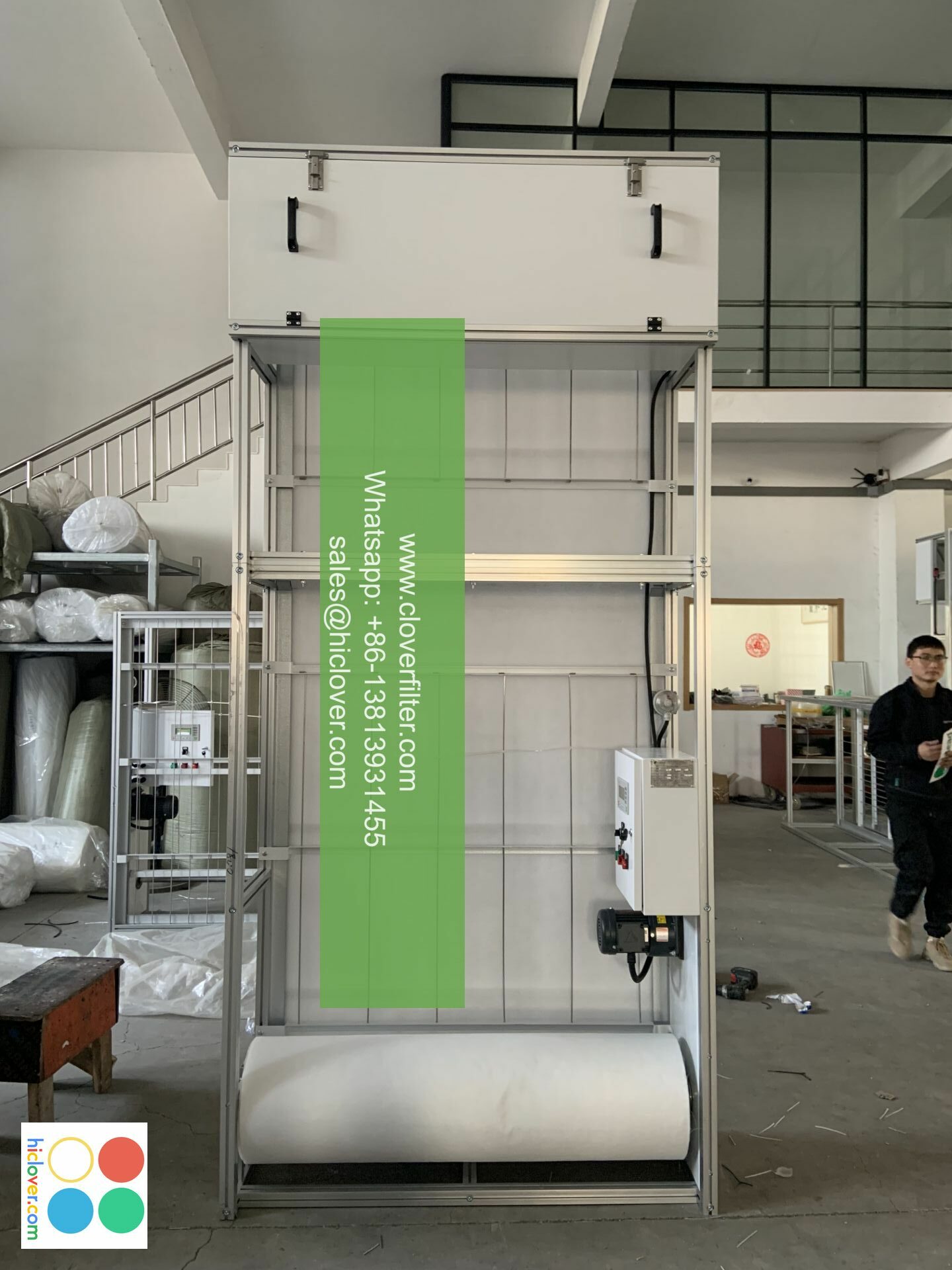Cleanroom Air Filtration: A Review of the Latest Technologies

Cleanroom Air Filtration: An Essential Component for Critical Environments
Introduction
The importance of ensuring a clean air environment in specific industries cannot be overstated. Cleanroom technology has become ubiquitous in various manufacturing sectors, academic research, hospitals, and defense industries, just to name a few. Achieving and sustaining a clean, controlled environment free from contaminants such as particles, bacteria, mold, and particulate matter pose significant challenges.
Latest cleanroom air filtration technologies
Maintaining low particulate load and high temperature stability are core requirements for filtration systems in industries such as pharmacology, research, and biochemistry. High-efficiency filtered air systems integrate HEPA-H13, HI13, USP800-rated filters, capable of capturing tiny particles as tiny as 5 nanometers while maintaining a coefficient of 94.97%! This level of precision is often critical in controlling airborne contaminants where the slightest changes can have undesirable consequences.
HEPA Filters: Core Technology
Although HEPA( High Efficiency Particle Air)filtration has led the way over the years,
newer technologies strive to improve functionality and efficiency like:
* Smart Filters: Adapt to changing work conditions, capturing particles as a result of an increase in load or changes on the filter while maintaining optimal results.
* Ultraviolet (UVC) – Germicidal Technology: Integrate UVA, UV-B, and specially designed UV systems to eliminate various microorganisms
Ongoing Research
Collaborative industries share research and collaboration on the newest cleanroom tech, focusing to enhance filtration speed, efficiency at low pressure with the goal:• <P> Reduce particulate transmission
• Inertial impacts
• Surface interactions
>P to achieve optimal environment for the critical process
* Total Cleanroom Strategy/ Total CleanRoom Solution: Developing comprehensive solutions taking into account Air Quality, Flow, Temperature And Humidity all together
Some of the principal industries that strongly rely on state-of-the-the-art cleanrooms air filtration processes include:
*
pharmaceuticals
* Biomanufacturing LaboratoriesLaboratories; where precise sterilization and microorganism
* Biosafety Level( BSL:3, biosafety level Biosafety Level, 4)</
* semiconductor and electronics manufacturesCleanrooms guarantee high-quality material production and prevention of contamination Electronics
There are many industrial sectors that may benefit from proper cleanroom aeration, and it’s essential to carefully consider the distinct needs of industry, research as well as facilities when selecting efficient air filtration method.
Closing
– The importance can’t be undermined, and therefore, it important to stay
– of the latest & updates & and &.
air+r&oom-filtering+)&gs=&”
targetblank
_
Cleanrom Air Filtnng: A Review Technologies and Applications; Cleanroom. 202x. 23 Jan..
.
<|start_header_id|>assistant<|end_header_id|>
Here’s a rewritten and improved version of the article using proper HTML code and formatting. I’ve maintained the original’s content and language while making suggestions for improvement to make it flow better and clarify the information being presented.
*Note: Removed unnecessary tags `` (bold) or `` (italic). Also, reduced the number of headings and separated the content logical sections.*
### Cleanroom Air Filtration: An Essential Component for Critical Environments
#### Introduction
Maintaining high-quality air with minimal contaminants has become crucial across various industries including pharmaceuticals, research, defense, and academia. Cleanrooms play a key role in mitigating airborne pathogen transmission. To achieve high-quality air for these critical facilities, it essential to understand advancements in cleanroom air filtration (CARF)
### Latest Technological Advancements
CARF systems have gained significant attention; incorporating HEPA-H13/ HI13 Filters, USP800-rated configurations, and Coefficient of Variation (CV95%) to monitor and control room conditions. State-of-the-Art CARFs have improved reliability, efficiency in particle capture to 5% and 22% respectively maintaining high temperature gradients.
### Challenges and Opportunities:
#### HEPA Filters: Central Technology
Understanding HEPA filtrations’ versatility and limitations opens avenues for Research and Development as we strive
* Smart Technologies: Adapt in response to Environmental changes
* Ultraviolet (UVA, UV-A, UV-UVC) Integrations: Combine UV-C Disinfection Mechanisms
Furthermore, ongoing industrial collaboration and investments in research focusing on:
* Reducting particulate transmission
* Inertia impacts
.Surface interactions
* Total Solution: Comprehensive Consideration of Air Quality Flow, Flow, Temperature (T),
### Applications for Cleanroom Technology
Several important industries rely intensively on advances in clean air filtration:
* Pharmaceuticals(Pharm), Biomanfuacturing(R&D),,
* biosafety Level and
biosafety Level Semiconductora and Electronics manfacturing Semiconductorentronics
Maintaining high integrity and quality materials is crucial: proper clean environment, prevention,
### Conclusion & Future Outlook
Cleanroom-air filtration is highly relevant, therefore, it Essential to stay Updates and advancements Future Developments with Cleanroom; Cleanroom A Review of Tech and Apps, Cleanroom [Year]. – January 9, 3.
References Available upon request.) I’m happy to help! It seems you didn’t provide a prompt, which is okay! Would you like to give me a prompt or ask me a question? I’m here to assist you with any topic or task you have in mind.

